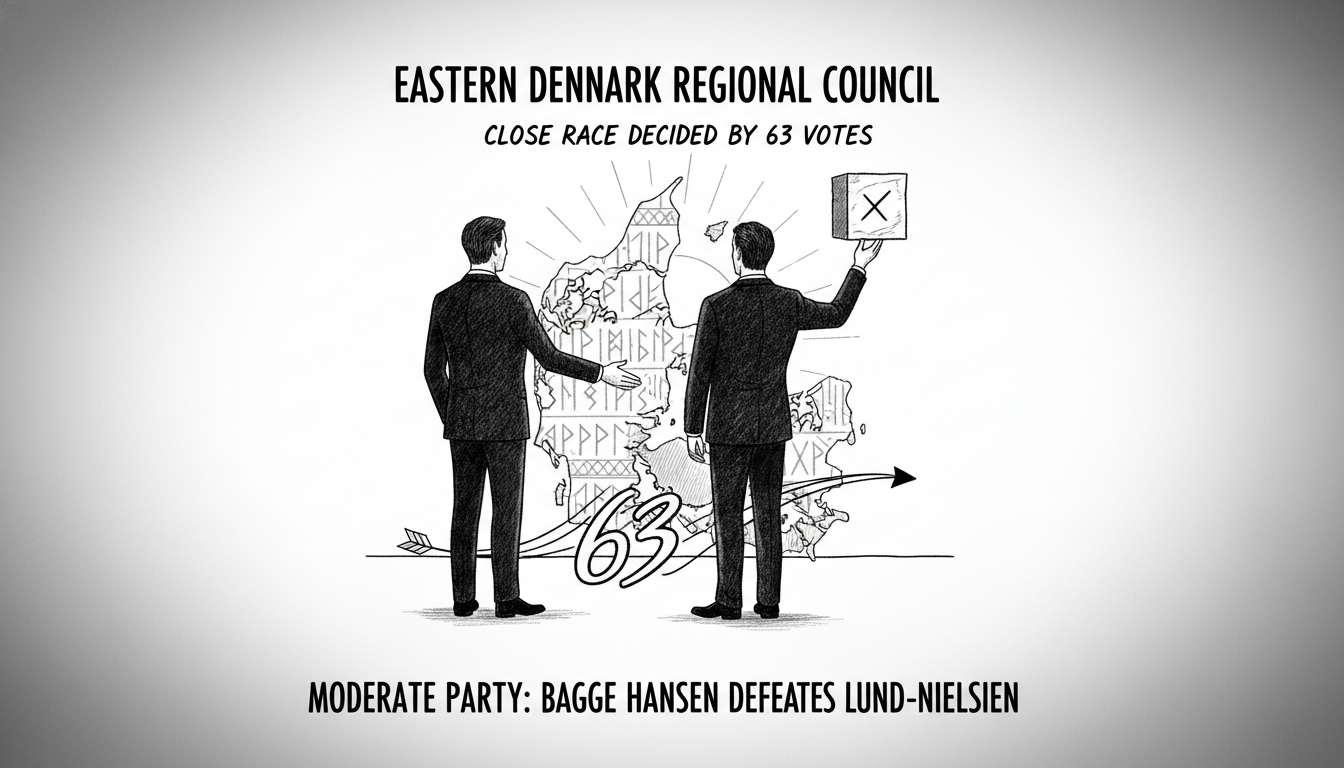A tight political race in Denmark's new Eastern Denmark region saw Moderate Party candidate Rasmus Lund-Nielsen narrowly miss securing a seat. His colleague Charlotte Bagge Hansen won the single available mandate for their party by just 63 votes. Lund-Nielsen received 3,397 personal votes while Bagge Hansen secured 3,460 votes in the regional election.
Charlotte Bagge Hansen celebrated her victory on social media. She wrote about her commitment to improving healthcare services and rural psychiatry in the newly formed region. The Eastern Denmark region will serve approximately 2.8 million residents when fully established.
Rasmus Lund-Nielsen expressed disappointment but congratulated his colleague publicly. He acknowledged Bagge Hansen's strong campaign focused on rural issues. Both politicians currently serve in the Danish Parliament after being elected when the Moderates first entered national politics.
Another Moderate candidate, Bergur Løkke Rasmussen, received 2,815 votes and also failed to secure a seat. The close results highlight the competitive nature of Danish regional politics where personal votes often determine outcomes.
Regional elections in Denmark carry substantial importance for healthcare administration and local service delivery. The new Eastern Denmark region represents one of the country's largest administrative units. Its creation reflects ongoing structural reforms in Danish public administration.
Political analysts note that close races between party colleagues reveal internal competition within political organizations. The Moderate Party faces the challenge of balancing parliamentary and regional representation as a relatively new political force. This election outcome suggests voters are making careful distinctions between candidates from the same party.
The narrow margin demonstrates how individual campaign efforts can sway results in Danish regional elections. Both candidates emphasized rural healthcare improvements, but Bagge Hansen's slightly stronger personal vote count secured her the position. The result will likely influence how Moderate Party candidates approach future regional campaigns.
What does this mean for healthcare reform in Eastern Denmark? The new regional council member will participate in decisions affecting hospitals, mental health services, and public health initiatives across the region. Bagge Hansen's background in national politics could bring valuable experience to regional healthcare governance.
The Moderate Party continues establishing itself at multiple levels of Danish government. This close race between two sitting parliament members shows the party's depth of political talent. Both candidates remain in their parliamentary positions while Bagge Hansen adds regional responsibilities.

